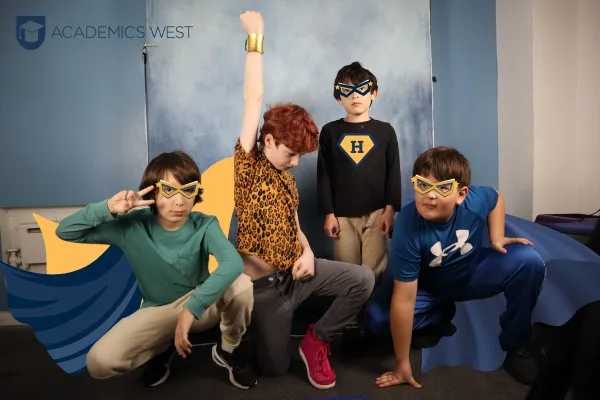Summer is a long stretch of time without regular academic instruction. Math, in particular, is an area that many students tend to avoid during this season. Yet research indicates that students regress in math more than any other subject during the summer break.
Practicing math over the summer does not need to be restricted to workbooks and worksheets. Rather than watching your child’s math skills diminish, try the activities below to integrate math into your daily summer activities. Your child may not even realize she’s practicing math skills with these fun and engaging activities. With regular practice over the summer, she’ll jump-start the new school year with a strong set of well-developed math skills!

Grocery Shopping
A trip to the supermarket might seem like another errand to check off your to-do list, but it can also serve as a great learning opportunity for your child. Bring your young child with you and have him practice basic addition. He can count three red apples, for instance, and add them to three green apples to make six total apples. For older children, have them identify the price of an item (a small bag of popcorn might be $1.25, for instance) and then ask them to tell you the total price of five bags. Cut out coupons ahead of time and ask your child how much $0.50 off a six-pack of seltzer would come to, or what the savings would be if a jug of milk was 25 percent off. These engaging activities serve as practical ways to reinforce fundamental math skills.
Eating at a Restaurant
Summer is a great time to dine out at family-friendly restaurants. Tie in some math learning (and help the minutes pass before your food arrives!) by asking your child to find the least expensive and most expensive items on the menu. You can also have her categorize items into those from, say, $5-$10, $10-$20, and $20-$30. Perhaps ask her to create a graph with these different values on the back of a paper menu or napkin. At the end of the meal, have her calculate how much a 15 percent and 20 percent tip would be, and decide which one to leave.
Road Trips
There are so many math skills that can be infused into road trips. First, decide where you’re going and how many miles it is to the destination. Based on the average speed you can drive, have your child estimate how long he thinks it will take to drive there. Look up how many miles per gallon your car generates, and how much gas it can hold, and determine how much gas you’ll need (and roughly how many times you’ll need to stop) to reach your destination. You can even price out different tiers of gas with your child to decide the difference in total price between the “cheap” gas verses the expensive one. Finally, have your child tally the cost of all items for the trip–gas, lodging, meals, etc., to come up with the total price for the vacation.
Sports
For the sports enthusiast, build math learning into athletic pursuits. Encourage your child to track stats for his favorite team (or his own team!) and create graphs on a whiteboard or paper. At a baseball game, have him keep track of strikes, noting that three strikes means the player is out and three outs means the other team goes to bat. Also have him calculate batting averages by dividing the number of hits a player achieved by the number of times he went to bat.
Cooking
There are so many opportunities for math enrichment while cooking. For children who struggle to understand the concept of fractions, engage the visual and kinesthetic senses by baking! Bake several large cookies, then divide them into halves, quarters, etc., to help your child touch, see, and feel fractions. You can practice with ice cream sundaes too. Take out three different containers of ice cream–say, vanilla, chocolate, and peanut butter. Have your child create a sundae in a bowl containing half vanilla and half peanut butter ice cream, or 1/3 vanilla, 1/3 chocolate, and 1/3 peanut butter. You can also bring out some topings and have her top one scoop of chocolate ice cream with 25 percent rainbow sprinkles, 25 percent chocolate sprinkles, 25 percent gummi bears, and 25 percent oreo cookie crumbles. The fun goes on!
Dr. Emily Levy is the founder of EBL Coaching, a tutoring program that specializes in one-on-one home and on-site instruction for students in grades preK-12 in NYC and NJ. She is also the author of Strategies for Study Success, a study skills workbooks series emphasizing test taking, note taking, reading comprehension, writing, and summarizing strategies, and theFlags and Stars Orton Gillingham student workbook series. These workbooks are currently used at schools nationwide. To learn more about Emily Levy and EBL Coaching, visit eblcoaching.com!






















